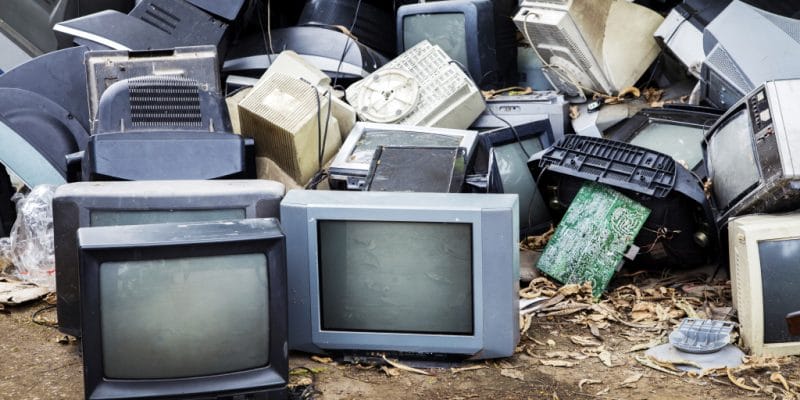Transforming the impact of digital technology into an opportunity for a circular economy is the aim of the e-waste awareness campaign launched in Rwanda over the next two months. The initiative, which is part of the East African country's ecological transition, will enable people in the capital Kigali to know where and how to dispose of old electrical and electronic equipment.
According to the Global E-waste Statistics Partnership, Africa generated nearly 2.9 million tons of waste electrical and electronic equipment (WEEE) in 2019, including 10,000 tons produced by Rwanda each year. With this in mind, the Rwandan government, in partnership with the United Nations Environment Programme (UNEP) and the International Telecommunications Union (ITU), is launching an awareness-raising campaign on electronic waste management.
The operation, which aims to stimulate the collection and recycling of old electrical and electronic equipment (computers, televisions, smartphones, tablets, etc.) will target the 1.2 million inhabitants of the city of Kigali until the end of June 2022. The initiative is also supported by the Rwanda Environment Management Authority (REMA), the Rwanda Information Society Authority (RISA), the Rwanda Green Fund (FONERWA) and the Global Green Growth Institute (GGGI).
While for the Rwandan government this campaign is in line with its strategy to be carbon neutral by 2050, the Rwanda Utility Regulatory Authority (RURA) has listed 650 types of electronic devices including solar products and air conditioners. All of this equipment contains hazardous chemicals such as lead, which, according to the World Health Organisation (WHO), pollutes soil, groundwater and surface water. In addition, these particles have toxic effects on the human immune system and reproductive system. This is why Rwanda has improved the sustainable management of e-waste in recent years.
Unfettered initiatives!
In 2021, the Rwandan authorities equipped each district of the country with an e-waste collection point thanks to the support of the Rwandan subsidiary of the UAE-based company Enviroserve. The first e-waste collection unit was set up in the northern district of Musanze, 120 km from Kigali.
Earlier in 2020, the Rwandan Ministry of ICT and Innovation in partnership with Smart Africa Secretariat, an African Union (AU) organisation, installed a smart waste management system in Kigali. These are smart bins with a real-time monitoring system, which uses sensor technology to alert collectors to their filling levels. The system also works with closed-circuit cameras and a geographic information system (GIS) for the security of waste collection facilities.
Read also:RWANDA: Kigali hosts the Global Circular Economy Forum in 2022
And that’s not all! From 1 July 2022, a regulation banning the import of e-waste, including cathode ray tubes (CRTs), will come into force in the East African Community (EAC), which includes Rwanda, Kenya and Tanzania. The text also stipulates that vendors of electronic gadgets operating in the region are responsible for handling the waste generated by their products.
Benoit-Ivan Wansi






